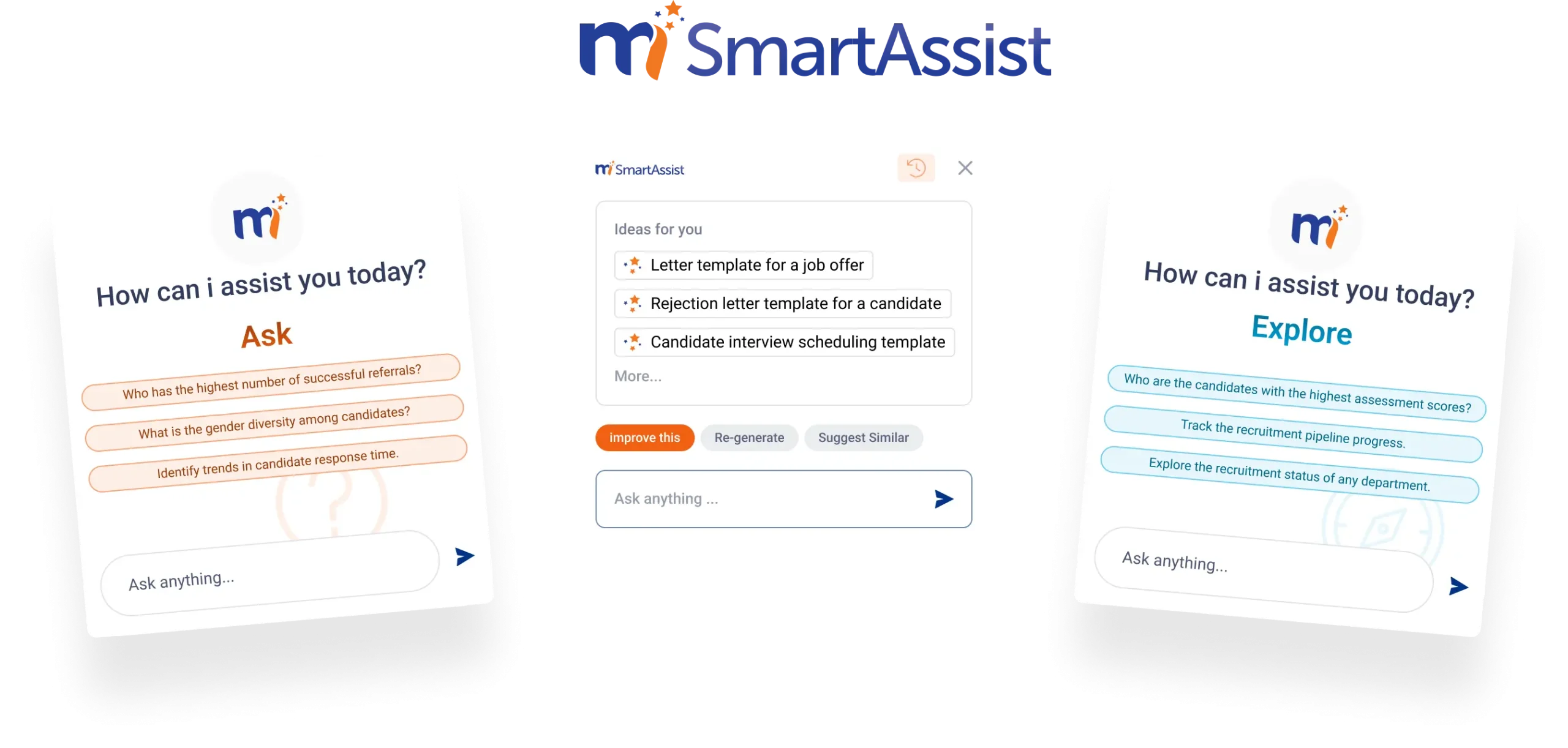AI is steadily transforming the recruitment landscape by automating complex processes, enabling HR professionals to focus on strategic tasks.
Leveraging powerful data analytics, AI enables recruiters to assess massive amounts of information swiftly and accurately and streamlines the entire process – from candidate sourcing to onboarding.

Key benefits of AI for recruitment
Rapidly transforming talent acquisition, integrating AI for recruitment offers a range of benefits:
- Enhances efficiency: with AI for recruitment, positions are filled faster, while the experience for both candidates and recruiters is improved, leading to time and cost savings
- Reduces biases: AI reduces biases that often creep into human decision-making, promoting a more diverse talent pool
- Encompasses the entire hiring journey: AI optimises each stage for better engagement and fit, whether it’s through automated resume screening or predictive analytics for candidate suitability
Efficiency gains
AI-driven tools – like MiHCM’s SmartAssist for Recruitment – automate numerous repetitive tasks, such as screening resumes, which not only saves time but also allows HR professionals to focus on strategic activities that require human judgment.
Predictive analytics, a key feature of AI recruitment tools, enhances the capability to analyse candidate data comprehensively, predicting future performance and ensuring a better fit via strategic, data-driven decisions.
Bias reduction and diversity
AI focuses on factors such as skills, qualifications, and experience, leading to a more diverse and inclusive workforce.
This is critical in modern recruitment, where diversity is not just a compliance requirement but a strategic advantage.
AI’s ability to maintain transparency and fairness in the recruitment process also boosts employer branding.
As AI consistently applies pre-determined criteria to evaluate candidates, it promotes neutrality, which instils trust among applicants.
Personalisation and engagement
AI for recruitment also transforms the candidate experience, offering real-time, personalised engagement.
From enabling the effortless uploading of CVs to highlighting their most important and relevant qualifications, AI guides candidates through the entire process.
Process efficiency
By integrating AI into recruitment workflows, organisations can streamline application processes, which reduces the chances of candidate drop-off.
Candidates are more likely to finish an application if the process is comprehensive yet concise.
AI systems can also efficiently manage large volumes of applicants, ensuring timely follow-up and feedback.
This efficiency in communication and application handling enhances the overall candidate experience and strengthens an employer’s brand reputation.
Algorithm transparency

As AI continues to be integrated into recruitment processes, maintaining algorithm transparency is key.
Candidates should be kept informed about how AI systems contribute to decision-making, which MiHCM does with its SmartAssist solution. This not only enhances trust but also ensures fairness.
Compliance with regulations
When adopting AI in recruitment, businesses must adhere to strict data protection regulations.
Ensuring compliance involves implementing robust data handling practices that protect candidate information and uphold their rights.
This not only safeguards the organisation from legal repercussions but also builds reputational trust in how they handle sensitive data.
Human interaction
While AI offers unparalleled efficiency and bias reduction, preserving human interaction within recruitment processes is vital to evaluate interpersonal dynamics, which are often not quantifiable by AI alone.
Human connection is essential in the recruitment process to foster long-lasting professional relationships.
Incorporating the human touch into AI recruiting strategies ensures that organisations maintain a balance between technology and human interaction.
Cost considerations
- Choosing scalable solutions: opt for AI platforms that offer scalability according to organisational growth and changing needs
- Integrating with existing systems: ensure that new AI tools can integrate seamlessly with current HR management systems for efficient data sharing and process automation
- Monitoring and adjusting strategies: continuously evaluate the effectiveness of AI tools and be willing to adjust ensure alignment with recruitment goals and candidate satisfaction


